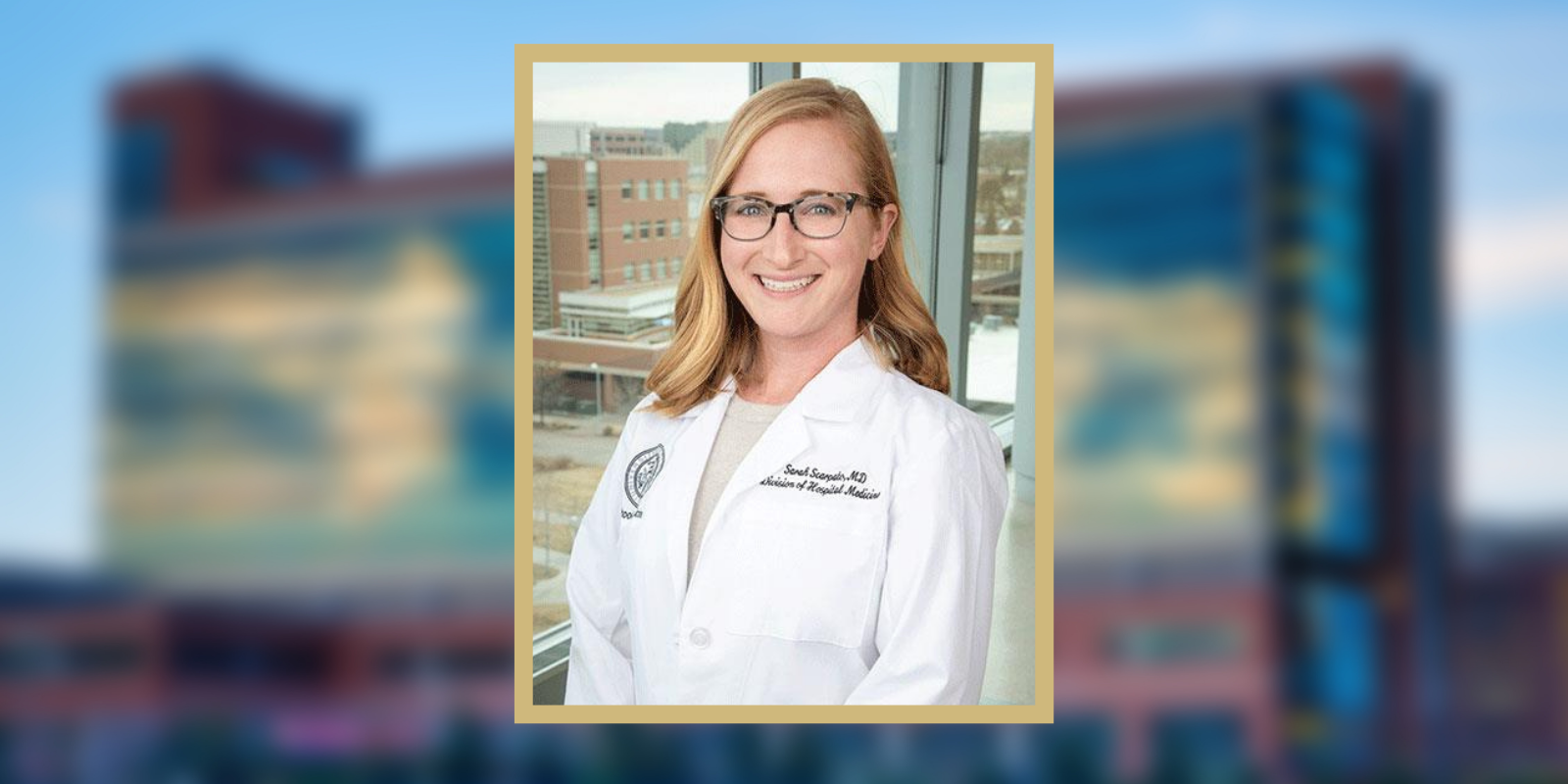What is the role of your Oncology Hospitalist Group?
Our providers specialize in the care of patients with non-gynecologic solid organ tumors who are admitted to the hospital. If needed for a particular patient, a dedicated inpatient team of an oncologist and an oncology fellow can coordinate any oncology-specific issues. We also have an inpatient palliative care team.
In general, we see complications that are related either to the cancer or the treatment, or both. If a patient comes in with any type of medical problem, when they have active cancer, they’ll come to our service.
Also, when cancer patients are admitted for a research trial, we help coordinate that. And as a teaching hospital, having a dedicated group of inpatient providers helps with that. Internal medicine residents rotate with us, which provides more focused education for them around hospitalized patients with cancer and their needs.
Our Oncology Hospitalist Group is one of the largest and oldest groups in the country. Many of the big academic cancer centers across the country are switching to this kind of model, but it hasn’t caught on totally yet.
Hospitalists in general are fairly new in the scope of medicine. It used to be that your outpatient doctor would continue to see you when were admitted to the hospital, but by the 1990s and 2000s it started becoming more specialized and the need grew for hospital-based doctors. And the concept of oncology hospitalists is even newer.
→ What Are Hospitalists? And What Value Do They Bring to Health Care?
What are some typical cases you see among your hospital patients?
We see patients with gastrointestinal cancers who have either pain or trouble with feeding. We see patients with lung cancer with breathing trouble. We have patients who get infections related to issues with their cancer. And sometimes we see people with side effects from their cancer treatment that need to be managed in the hospital.
Last year we had more than 2,000 patient discharges from our service. Some of those were patients who came in multiple times. That’s grown quite a bit – just two years ago we were closer to 1,500. Our patients’ average length of stay is about six days.
From the patients’ perspective, what’s the advantage to having an onc-hospitalist team available?
You have someone who is dedicated to your care while you’re in the hospital and who has a background in what you’re dealing with. We're not trying to go back and forth to the clinic or deal with outpatient issues. We’re purely dedicated to what’s going on with patients when they’re in the hospital, which is good especially when patients have complicated hospitalizations and a lot going on.
We have a lot of patients who’ve been somewhere else who comment on how great the care is, and I think a lot of that is due to our multidisciplinary team. It’s not just oncology hospitalists; it’s specialized nurses, social workers, care managers, nutritionists, social workers, and occupational and physical therapists. Everybody is very specialized and good at working with patients with cancer and understanding specific needs that they have.
There’s a lot of coordination of care. When a patient is admitted, we communicate directly with their treating oncologists and get input from them. We also work closely with other subspecialists, including gastroenterologists, interventional radiologists, infectious disease specialists, and many others. We act as the quarterback of the medical team to make sure that everyone is working together and that the patient’s stay goes smoothly.
What sort of training do you get as a hospitalist, and what additional training do onc-hospitalists get?
The physicians I work with did a three-year residency in internal medicine after medical school and then, instead of treating patients in the clinic, we treat patients in the hospital. As physicians, we work closely with a number of outstanding physicians’ assistants and nurse practitioners, most of whom completed fellowship training in hospital medicine here at CU.
Because it’s a new and evolving field, there’s not a national onc-hospitalist board yet that we have to complete. We are all board-certified in internal medicine. Internally, we have a group of core faculty, and in order to be a core faculty member on the onc-hospitalist service, you have to do at least a year training with providers versed in the care of oncologic patients.
A few years ago, your group started an outpatient clinic at the Anschutz Outpatient Pavilion. Tell me about that.
We’re very proud of that. It’s called the Clinical Assessment and Rapid Evaluation (CARE) Clinic, run by our onc-hospitalist advanced practice providers, and it’s essentially an urgent care for any patient with an oncologist at CU who needs help with managing symptoms from cancer or cancer treatment. They can call and get same-day appointments. And when we discharge patients from the hospital, we can schedule follow-up appointments at the clinic. It’s helped us improve the transition from hospital to home, and it’s also helped to reduce hospital admissions as well because they can do a lot of things at the clinic – give IV fluids, treat pain, and so on.
How did you get interested in the onc-hospitalist field?
I did my internal medicine residency at the University of Pennsylvania, which is a leading cancer research institution, so I was exposed to a lot of oncology there and became interested in it. But I also really liked inpatient hospital medicine. So that’s part of the reason I didn’t choose to go into oncology specifically. I was more attracted to an onc-hospitalist position.
This is demanding work and the hours are long, but the people who gravitate towards it are very passionate about it. We really enjoy it.




